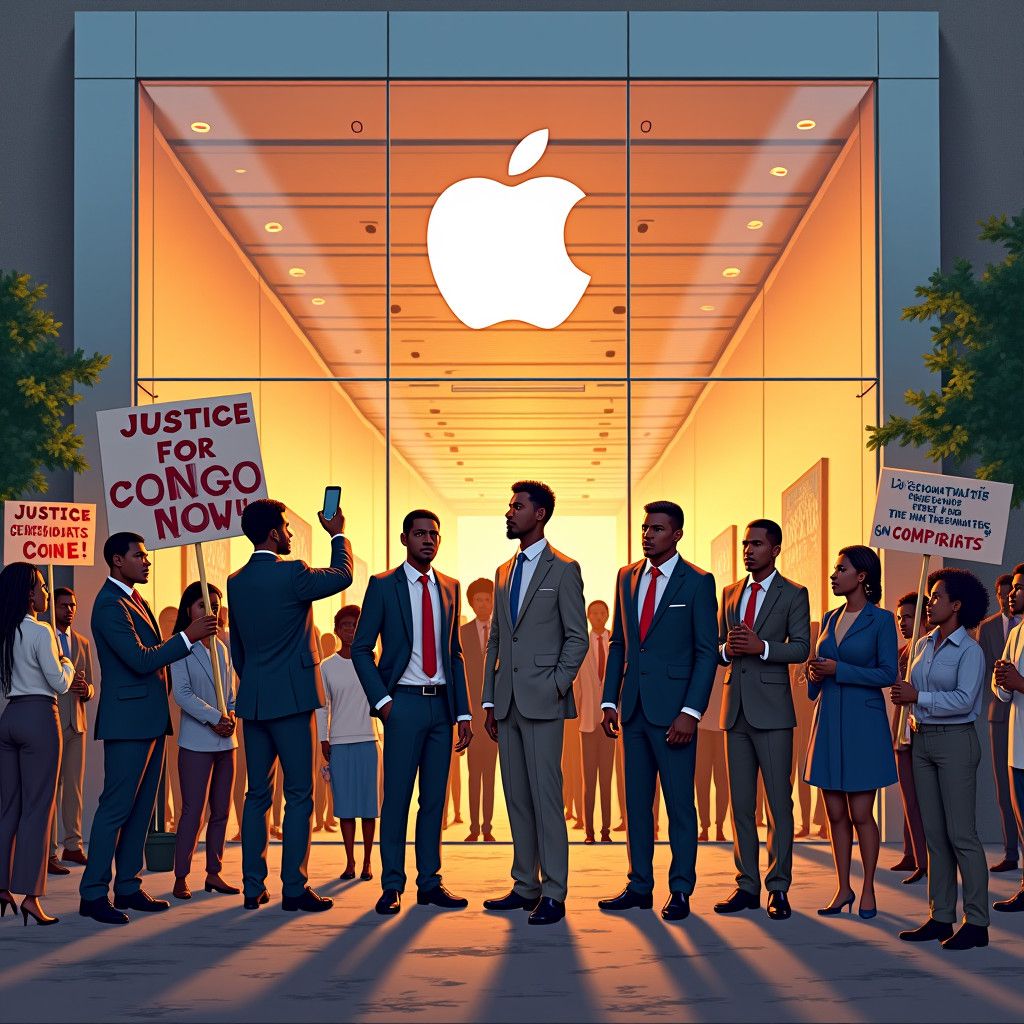In a significant legal move that reverberates through the tech industry, lawyers in Congo have initiated a campaign against Apple, aiming to hold the tech giant accountable for its practices regarding conflict minerals. This legal action not only highlights the ethical implications in the supply chains of major corporations but also emphasizes the increasing pressure on companies like Apple to ensure transparency and responsibility in their sourcing.
Conflict minerals, which often include tin, tungsten, tantalum, and gold, are mined in war-torn regions, where their extraction can perpetuate violence and fund armed groups. Congo is notorious for its resource-rich landscapes, yet many of its mineral mines are associated with human rights abuses. By filing complaints against Apple, Congo’s legal representatives are directly accusing the company of complicity in these practices, which undermines any claims to ethical sourcing that Apple makes.
The complaints filed by the Congolese lawyers specifically request that Apple verify its supply chain claims. This demand comes in the wake of growing public consciousness about corporate responsibility. Consumers increasingly want to understand the origins of the products they buy, pushing companies to adopt more transparent practices. This trend has been particularly pronounced in the tech sector, where high-profile brands are often scrutinized for their sourcing methods.
An example that illustrates the need for better oversight comes from the report by Amnesty International, which shows that electronics companies often play a role in financing conflict through their use of unverified minerals. The 2017 report titled “This Is What We Die For” explains how the demand for conflict minerals fuels violence and abuses in the Democratic Republic of Congo (DRC). Hence, the legal actions initiated by Congolese lawyers are part of a broader movement calling for accountability not just from Apple, but from all companies reliant on these resources.
Moreover, this legal challenge is set against a backdrop of increasing regulatory scrutiny in countries where these corporations operate. The European Union, for instance, has enacted legislation aimed at ensuring the community is not inadvertently complicit in human rights abuses through their purchasing decisions. As more companies, including technology giants, navigate these regulations, the legal challenge from Congo could become a pivotal case that sets a precedent for holding firms accountable for their supply chain practices globally.
Apple, in response to these allegations, has stated its commitment to ethical sourcing and transparency. The company has long advocated for responsible resource management and has implemented various measures to ensure compliance with human rights standards, including audits of its suppliers. However, activists argue that these measures are insufficient and often lack thorough oversight.
The repercussions of this battle could extend beyond legal consequences for Apple. If successful, the case could inspire similar actions by other nations or organizations representing communities affected by mining practices, potentially reshaping industry norms. It highlights the critical intersection of corporate responsibility and the rights of individuals in developing nations.
Important to note is the larger movement of social responsibility that has echoed through various sectors. The rising expectation for businesses to actively demonstrate their commitment to ethical practices reflects a shift that could alter how future generations engage with technology and the brands behind them.
As this legal battle progresses, the world watches closely, recognizing that the outcome may well influence both corporate practices and regulatory frameworks in relation to humanitarian issues. It serves as a reminder of the ongoing struggles of communities around the globe, driven by the interplay of technology, ethics, and accountability.
In conclusion, the steps taken by Congolese lawyers against Apple signify a critical juncture in the advocacy for responsible sourcing within the tech industry. It underscores the importance of corporate accountability in the global supply chain and the necessity for transparent business practices that truly respect human rights.
The case will likely have implications beyond the legal realm, pushing other corporations to rethink their sourcing strategies and practices. As consumers become increasingly aware and concerned about the ethics behind the products they purchase, transparency and accountability may soon become the cornerstones of the tech industry.












